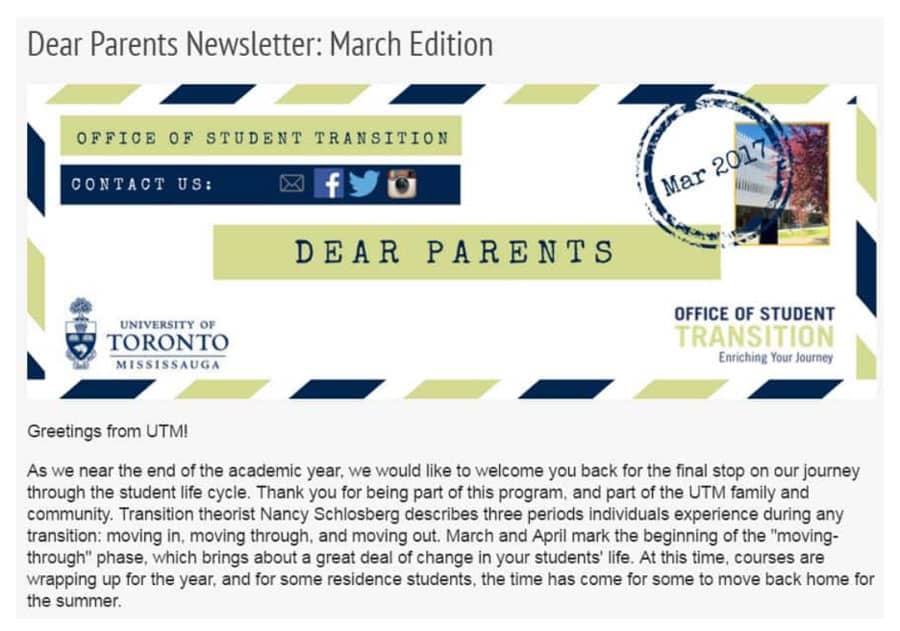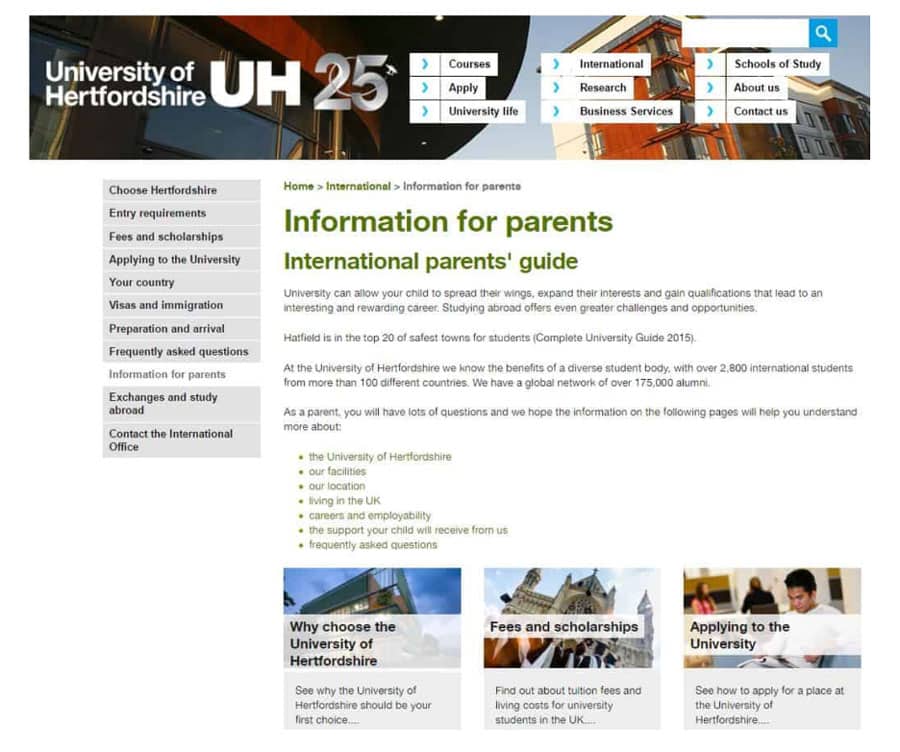Are you paying enough attention to parents in your recruitment marketing?
- Parents play a key role in students’ decision-making about study abroad, and understanding their most pressing needs, questions, and priorities in the COVID pandemic era is crucial for institutions everywhere
- As well as marketing directly to parents, institutions can also choose to consider parents as partners in spreading the good news and key facts about their school to other parents
The best international education marketers understand that it isn’t only students who have dreams for their future lives and careers, but also their parents. Parents are often deeply involved in student’ decisions about study abroad, including choice of destination, institution, degree, and accommodation. The stakes are especially high for the many parents who are (literally) banking on the hope that their children’s education, quality of life, and eventual income will be better than theirs.
Research underlines the importance of parents for recruiters. A 2018 survey conducted by research firm EAB among 5,580 college-bound students found that more than three-quarters of students indicated that their parents were highly influential, second only to email from colleges and higher than the opinions of friends in college or current classmates. Another EAB study of 1,500 parents of college-bound students found that 74% felt that colleges should communicate with them directly.
Parents, adds the The Ambassador Platform, “have a unique and compelling perspective that your marketing and admissions team cannot match. They understand and relate to prospective parents, providing organic insights and advice based on real-world experience… Every parent who sends their child to your school is a valuable advocate in waiting. After all, they're trusting you to look after the most important people in their lives. It's hard to think of a better endorsement.”
The pandemic has amplified the need to reach out to parents
Acknowledging parents as key stakeholders whose needs must be considered during recruitment as well as during students’ time enrolled is more important than ever as a result of the pandemic. The ordeal has left some families less financially secure than before it began, and it has naturally increased parents’ concerns about how safe students will be – and how cared for by institutions, other students, and governments – if they travel to another country.
In short, parents need more assurances and ongoing communication than they might have pre-COVID. Ensuring that you have good, targeted information for parents on your website is a must. Better yet, add a personalised email marketing campaign to the mix so that parents feel especially engaged with your institution.

Social media is another channel to investigate, and there are influential parent-only groups to be found and engaged with, including Circle of Moms, which Higher Education Marketing (HEM) describes as “an influential WeChat group consisting mostly of mothers of Chinese students who are interested in sending their children to education institutions in the United States.”
Money matters
HEM points out that parents may be more concerned with financial considerations than students are, since they are often more responsible for funding students’ education than students themselves. They advise institutions to provide “a transparent breakdown of tuition, room and board, and other fees – clarify the specific rates for international students as well as typical payment options, budgeting advice, scholarship opportunities and other frequently asked questions.”
EAB research underlines how important transparency about costs – and advice about budgeting – is when communicating with parents. Their research found that more than a third of parents “aren’t sure at all about how much to pay for their students’ education—and 43% reported being unsure if they could afford any college at all.”
Harness the power of parents
Parents are also powerful brand advocates. When their children are experiencing success at an institution – not to mention being presented with amazing training opportunities and going on to good careers – parents will tell their friends, friends whose children may also be considering study abroad. What’s more, many of them will be happy to tell other parents they don’t know. Leveraging their excitement can be done in a number of ways, including:
- Creating an online forum for current and prospective parents to share information – The Ambassador Platform (TAP) notes some of the most powerful elements of Dulwich College Singapore’s forum here;
- Gathering written/video testimonials from happy parents that can be housed in a special section of the institutional website;
- Engaging parents in local recruitment activities (e.g., volunteering at events, speaking in schools).
Get sophisticated – consider segmentation
Not all parents of international students are alike, of course – their priorities, circumstances, culture, and language will differ greatly according to which country they are in. HEM advises,
“Developing multiple student and parent personas for your top source markets can be a good first step toward clarifying the unique cultural backgrounds, academic motivations and concerns influencing your diverse prospects’ study decisions. Start from your experience with your current students and common questions to your admissions advisors, then add emerging social, economic and political considerations affecting recruitment. The resulting profiles can help to customize marketing approaches and key messages for each market.”
Essential questions to answer
HEM provides a comprehensive list of essential information for parents that is especially relevant in a COVID era where governments’ and institutions’ policies have so drastically affected the lives of international students. They advise institutions to provide information on:
- How policies impact international students;
- Any flexibility in study options “such as the opportunity for blended learning and multiple majors, effective teaching approaches and potential benefits of less expected career paths”;
- “Which immigration documents are needed – provide helpful links for accessing visas to study and work”’
- Practical information such as “orientation and pre-arrival programmes, registration and housing information, meal plans and food options, transportation concerns, and ongoing support services for international students … international parents will greatly appreciate campus maps, orientation videos, and advice for arriving from the airport.”

A parent strategy requires careful consideration
The research and examples provided here underline the tremendous potential of a parent-focused marketing strategy, as well as the hard work required to set it up and maintain it for best effect. As with students, the success of the strategy will hinge on how thoughtfully designed it is and how much commitment goes into maintaining it and ensuring that parents feel respected and valued – rather than simply marketed to.
For additional background, please see:


















